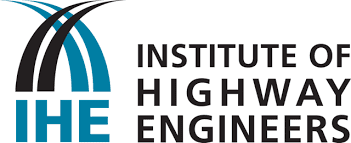
Geotechnical and Geological Engineering
Specialise in key aspects of engineering geology and explore the fundamentals of geomechanics.
Specialise in key aspects of engineering geology and explore the fundamentals of geomechanics
Get practical research experience in the lab using state-of-the-art facilities
Apply your knowledge in the field, in the UK and abroad
Course key facts
Qualification
MSc
Duration
1 year, 2 years
Start date
September 2025
Study mode
Full-time, Part-time
-
Fees
£18,500 Home
£42,900 Overseas
Delivered by
Location
-
South Kensington
-
Minimum entry standard
2:1 in Civil Engineering, Natural Sciences, Earth Sciences or other numerate subject
Course overview
Examine core engineering science and recent research findings on this one-year, MSc course, designed to deepen your understanding of geotechnics.
You'll explore key concepts and principles of soil mechanics before specialising in aspects of engineering geology.
A major focus of this programme is to help you find solutions to engineering problems connected with the study of geological factors, such as soil, rock, groundwater and other natural conditions.
You'll enhance your technical and research skills working in modern, purpose-built laboratories, and carry out an extensive research project.
This degree will also enable you to forge strong links with industry and enhance your fieldwork skills on a series of trips to areas of geological and geotechnical interest in the UK and abroad.
This course is part of the geotechnics cluster of courses at Imperial. These streams share approximately 80% of the curriculum, while the remaining 20% allows specialisation in the areas of advanced Soil Mechanics, Engineering Seismology, Environmental Geotechnics and Engineering Geology.
- Geotechnical Engineering
- Geotechnical and Geoenvironmental Engineering
- Geotechnical and Geological Engineering (this stream)
- Geotechnical and Earthquake Engineering
- Geotechnical Engineering with Data Science
- Geotechnical Engineering with Offshore Renewables
Structure
This page is updated regularly to reflect the latest version of the curriculum. However, this information is subject to change.
Find out more about potential course changes.
Please note: it may not always be possible to take specific combinations of modules due to timetabling conflicts. For confirmation, please check with the relevant department.
You’ll take all of these core modules.
Core modules
Develop your understanding of the flow of water in soil strata under both steady state conditions (seepage) and transient conditions (consolidation).
Build upon basic principles of soil mechanics to establish modern frameworks for describing the behaviour of clays and sands under a variety of loading conditions using Critical State Soil Mechanics theory.
Uncover the theory behind the methods of analysis available for geotechnical design and understand the assumptions behind different methods.
Gain an in-depth understanding of site investigation techniques and learn how they can be used within the context of the geological and geomorphological setting to reduce uncertainty in the subsurface.
Analyse the design of rigorous geotechnical laboratory testing programmes, and develop the critical skill and ability to recognise and assess experimental errors.
Assess key concepts in hydrogeology related to the movement, storage and quality of groundwater and derive models to explain the behaviour of groundwater.
Learn how to design foundations and earth-retaining structures, solving typical geotechnical soil-structure interaction problems.
Examine the geotechnical characteristics of slopes and embankments, and learn how to classify mechanisms that underpin landslides, considering both geomorphological and geotechnical criteria.
Explore a wide range of geotechnical processes through case studies and learn techniques for monitoring surface and subsurface displacements.
Understand the problems associated with contaminated land that have arisen from the unmanaged release of pollutants into the environment.
Become familiar with the principal concepts and techniques used in engineering rock mechanics and apply theory to practical real world engineering problems.
Develop your geotechnical skills in the natural environment on three separate field trips spaced through the academic year. Gain first-hand experience of real world rock/soils, geological setting, geohazards and construction projects.
Learn from experts in industry on current developments in the field and explore present prominent projects from all over the world.
Professional accreditation
This MSc degree is accredited on behalf of the Engineering Council by the Joint Board of Moderators (JBM), comprising:
- Institution of Civil Engineers
- Institution of Structural Engineers
- Institute of Highway Engineers
- Chartered Institution of Highways and Transportation
This degree is recognised as meeting the requirements for Further Learning for a Chartered Engineer (CEng) for candidates who have already acquired a partial CEng accredited undergraduate first degree**.
Registering as a Chartered Engineer will improve your career prospects and provide higher earning potential. It will also help to demonstrate your commitment to professional standards, the engineering profession and sustainable development.
Our accreditation agreement with members of the Joint Board of Moderators is renewed every five years. The current accreditation agreement is due to be renewed in 2026.
**Candidates completing the MSc who hold an underpinning accredited IEng degree or a non-accredited Bachelor's degree will need to apply for an academic assessment to determine whether they will meet the educational base for CEng registration.
Teaching and assessment
Balance of teaching and learning
Key
- Lectures and seminars
- Independent study
- 30% Lectures and seminars
- 70% Independent study
Teaching and learning methods
-
Lectures
-
Tutorials
-
Laboratory practicals
-
Computer sessions
-
Field trips
-
Site visits
-
Virtual learning environment
-
Research project
Balance of assessment
Key
- Coursework
- Examinations
- 32% Coursework
- 68% Examinations
Assessment methods
-
Coursework
-
Group projects and presentations
-
Field trip notes and presentations
-
Written exams and e-examinations
-
Research dissertation
Entry requirements
We consider all applicants on an individual basis, welcoming students from all over the world.
2:1 in Civil Engineering, Natural Sciences, Earth Sciences or other numerate subject. A suitable grounding in Mathematics is required, eg A-level grade B or higher.
Footnotes
Applicants who do not meet the academic requirements listed but who have substantial relevant industry experience may exceptionally be admitted following completion of a ‘Special Qualifying Exam’ (SQE).
How to apply
Apply online
You can submit one application form per year of entry. You can choose up to two courses.
Application deadlines – Round 3 closes on Thursday 15 May 2025
We operate a staged admissions process with several application rounds throughout the year.
Apply by 23.59 (UK time) on the closing date of an application round, to ensure you receive a response on your application by the relevant decision date.
Application rounds dates
Round 1
- Applications open on Friday 27 September 2024
- Applications close on Thursday 16 January 2025
- Decision by Thursday 6 March 2025
Round 2
- Applications open on Friday 17 January 2025
- Applications close on Thursday 27 March 2025
- Decision by Thursday 1 May 2025
Round 3
- Applications open on Friday 28 March 2025
- Applications close on Thursday 15 May 2025
- Decision by Thursday 17 July 2025
Round 4
- Applications open on Friday 16 May 2025
- Applications close on Friday 4 July 2025
- Decision by Thursday 31 July 2025
Round 5
- Applications open on Saturday 5 July 2025
- Applications close on Monday 1 September 2025
- Decision by: Monday 8 September 2025
There is no application fee for MRes courses, Postgraduate Certificates, Postgraduate Diplomas, or courses such as PhDs and EngDs.
If you are applying for a taught Master’s course, you will need to pay an application fee before submitting your application.
The fee applies per application and not per course.
- £80 for all taught Master's applications, excluding those to the Imperial College Business School.
- £100 for all MSc applications to the Imperial College Business School.
- £150 for all MBA applications to the Imperial College Business School.
If you are facing financial hardship and are unable to pay the application fee, we encourage you to apply for our application fee waiver.
Find out more about how to apply for a Master's course, including references and personal statements.
An ATAS certificate is not required for students applying for this course.
Fees and funding
Home fee
Full-time
£18,500
Part-time
£9,250per year
Fees are charged by year of entry to the College and not year of study.
You should expect and budget for your fees to increase each year.
Your fee is based on the year you enter the university, not your year of study. This means that if you repeat a year or resume your studies after an interruption, your fees will only increase by the amount linked to inflation.
Find out more about our tuition fees payment terms, including how inflationary increases are applied to your tuition fees in subsequent years of study.
Whether you pay the Home or Overseas fee depends on your fee status. This is assessed based on UK Government legislation and includes things like where you live and your nationality or residency status. Find out how we assess your fee status.
If you're a UK national, or EU national with settled or pre-settled status under the EU Settlement Scheme, you may be able to apply for a Postgraduate Master’s Loan from the UK government, if you meet certain criteria.
For courses starting on or after 1 August 2024, the maximum amount is £12,471.
The loan is not means-tested and you can choose whether to put it towards your tuition fees or living costs.
How will studying at Imperial help my career?
Develop the essential core knowledge and skills for a career in soil mechanics.
Build relationships with industry contacts you'll meet throughout the program.
Work in the field, conduct lab tests, and analyse numerical data to gain practical experience.
Become an international consultant, contractor or work for a governmental body or academic institution.
Our graduates often pursue further study in master's programs or doctoral research in geotechnics.
Further links
Contact the department
- Telephone: +44(0) 20 7594 5929
- Email: cvpgo@imperial.ac.uk
Course Director: Dr Ken Vinck
Visit the Department of Civil and Environmental Engineering website.

Request info
Find out more about studying at Imperial. Receive updates about life in our community, including event invites and download our latest Study guide.

Events, tasters and talks
Meet us and find out more about studying at Imperial.

Contact the department
- Telephone: +44(0) 20 7594 5932
- Email: cvpgo@imperial.ac.uk
Course Director: Dr Katerina Tsiampousi
Visit the website.

Terms and conditions
There are some important pieces of information you should be aware of when applying to Imperial. These include key information about your tuition fees, funding, visas, accommodation and more.
You can find further information about your course, including degree classifications, regulations, progression and awards in the programme specification for your course.
Programme specifications


